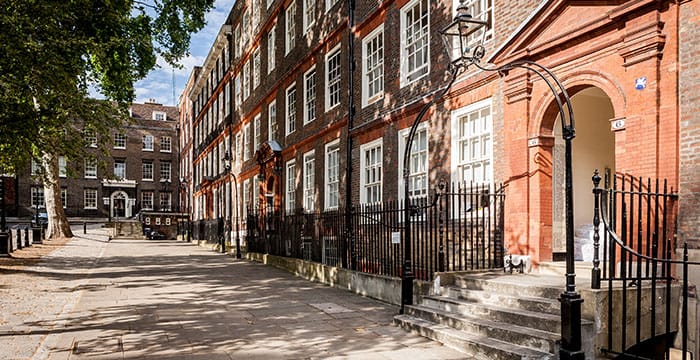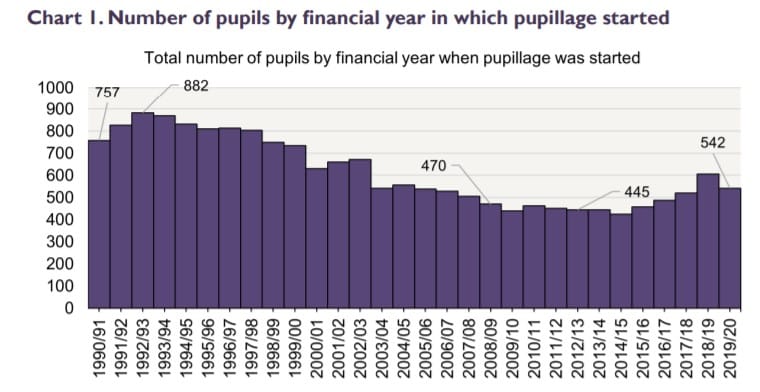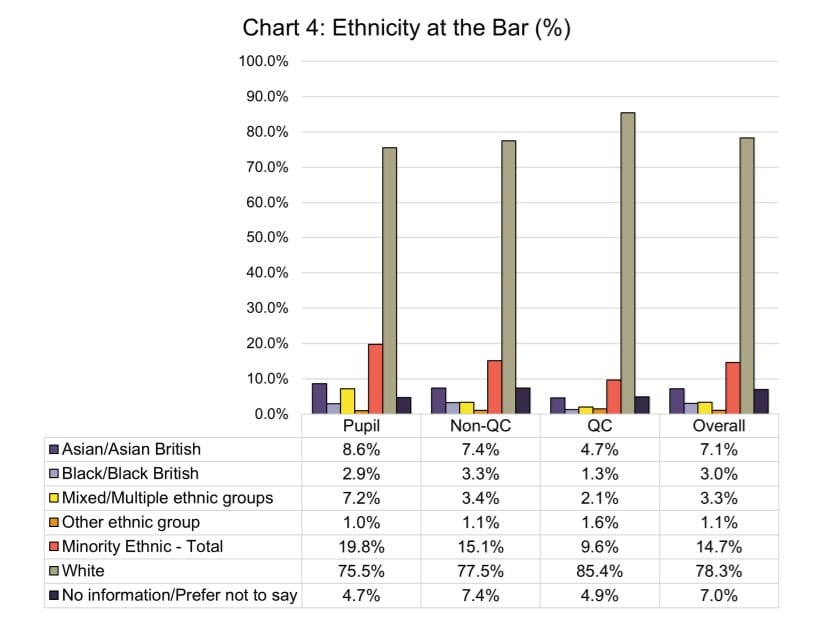BSB report shows leap from pandemic-y 354 in 2020 to 511 in 2021

Pupil barrister numbers have rebounded post-lockdown, the Bar Standards Board (BSB) says.
There were 511 barristers-in-training at the end of 2021, compared with a record low 354 in pandemic-scarred 2020.
That’s higher than the average (472) for the five years leading up to the pandemic, the BSB reports.
But the numbers are still low by historical standards. In the 1990s, chambers took on about 800 pupils a year.

Pupil barristers are 55% female at least 20% Black, Asian or from another ethnic minority.
The profession as a whole continues to get slowly more diverse, but QCs remain more white and male than the country as a whole.
The bar is 38.8% female (up 0.6 percentage points), while women account for 17.9% of QCs (+ 1.1 points).
Barristers are now exactly as ethnically diverse as the working-age population. 14.7% of those who answered that question are Black, Asian or from another ethnic minority (BAME), or 15.8% excluding non-respondents: “this compares to around 14.7 per cent of the 16-64 working age population in England and Wales as of Q3 2021”.
The proportion of ethnic minority QCs rose from 8.8% to 9.6%. The BSB comments that this is partly down to there being fewer BAME barristers in the past, “but may also suggest barriers to progression for practitioners from minority ethnic backgrounds”.
That’s if you lump all ethnic minorities together. People from an Asian or mixed ethnic background are over-represented at the bar, statistically speaking, while Black people are under-represented (particularly at QC level).

The report also notes that a “disproportionately high number of barristers attended a UK independent [private] school”. Almost 37% are privately educated, although this has been “gradually trending downwards since 2015”.
The figures come from the BSB’s annual report on Diversity at the Bar, published on Friday.
For the latest news, commercial awareness insight, careers advice and events:
Sign up to the Legal Cheek Newsletter

